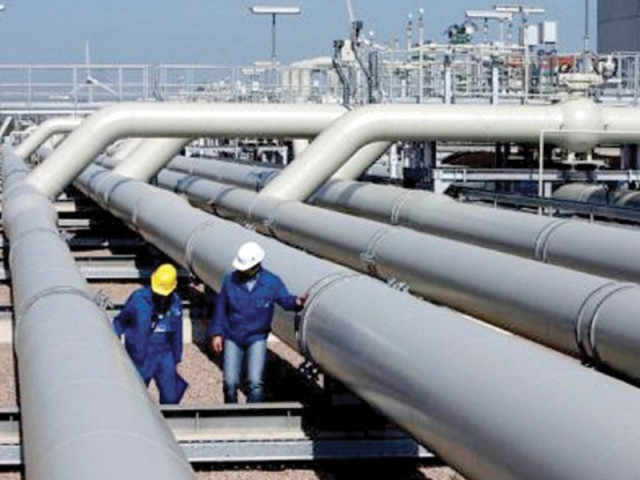Gas production: Centre dismisses provinces’ claim of revenue loss
Argues gas development surcharge collection will instead increase

Argues gas development surcharge collection will instead increase. PHOTO: FILE
The federal government has dismissed the allegation made by Sindh and Balochistan, who say their revenue receipts in terms of gas development surcharge have decreased after the revocation of Mari Petroleum Company’s pricing agreement.
Instead, the federal government said, the share of provinces in gas surcharge would increase.
The remarks came following a strong reaction from Sindh and Balochistan to the abolition of the gas pricing formula for Mari Petroleum as they argued that their revenue from gas production had come down significantly and their share in the surcharge had dropped almost 50%.
They protested against the move in a meeting of the Inter-Provincial Coordination Committee held on May 6.
Responding to the complaint, the federal government said Mari Petroleum was one of the private sector exploration and production companies and gas price for all other companies was determined under some formula linked with the crude oil price depending on applicable policies and agreements.
However, Mari Petroleum’s gas price was set under the formula of cost plus return on equity. The cost mainly includes the operating cost, capital expenditure and exploration and development expenses of $40 million per annum outside the Mari field.
The federal government pointed out that Mari Petroleum had been seeking a revision of its wellhead gas price since 2001 when a similar price formula of Pakistan Petroleum Limited (PPL) was revised.
The Economic Coordination Committee (ECC) of the cabinet approved a change in the wellhead price determination formula from cost-plus to the one linked with crude oil, exactly in line with that of PPL.
The wellhead price is only a component of the total consumer price. It said the consumer price would still be determined by the centre in line with its policy and general economic conditions for which the main driving force was revenue requirements of gas utilities – Sui Northern Gas Pipelines (SNGPL) and Sui Southern Gas Company (SSGC) – and had no nexus with the change in Mari’s wellhead price.
It argued that under the revised wellhead price, revenues from the gas development surcharge would not change in comparison to the projects working under the cost-plus arrangement.
“Rather with the fall in crude oil prices, GDS being a price differential margin (that covers price difference) will increase,” said the Ministry of Petroleum and Natural Resources.
The Sindh government, however, was of the view that there were certain matters pertaining to gas supply and production that needed to be settled by the federal government. Among these, the collection of gas infrastructure development cess and reduction in gas surcharge were critical issues.
It stressed that according to entry number two of the Federal Legislative List Part-II, decisions on matters relating to natural gas including the import of liquefied natural gas should be taken by no other forum except for the Council of Common Interests (CCI) that had the authority and power. However, the matters were decided in the ECC where provinces had no representation.
The province asked the Ministry of Petroleum to deposit all collection of gas surcharge with the provinces, arguing that it was a provincial revenue source and its deduction had adversely affected their cash balance.
Published in The Express Tribune, June 16th, 2015.
Like Business on Facebook, follow @TribuneBiz on Twitter to stay informed and join in the conversation.



















COMMENTS
Comments are moderated and generally will be posted if they are on-topic and not abusive.
For more information, please see our Comments FAQ